- PSM-AP Returns to Aarhus
An excellent second edition of the workshop on “Television Strategies in an On-Demand Driven Media Culture: Content production, audience considerations and publishing practices” took place this week at Aarhus University. The event was organised by Hanne Bruun and Julie Mejse Münter Lassen, under the umbrella of the research project Re-scheduling Public Service in the Digital Era.
The event brought together media scholars and practitioners from DR and TV 2 in a knowledge exchange workshop focused on how on-demand driven media culture is currently changing the television industry. On the occasion, members of the PSM-AP team presented ongoing research across different work packages:
- Balancing the scales between public service algorithms and editorial curation. The cases of Belgium and the UK was presented by Catalina Iordache and Catherine Johnson.
- This is not HBO – this is Television. PSM VoDs and personalisation practices by Hanne Bruun.
- “Television is about change”: A production study of DR’s digital transition by Julie Mejse Münter Lassen
- Measuring discoverability and prominence of European and domestic works: presenting a methodological toolbox by Tim Raats.
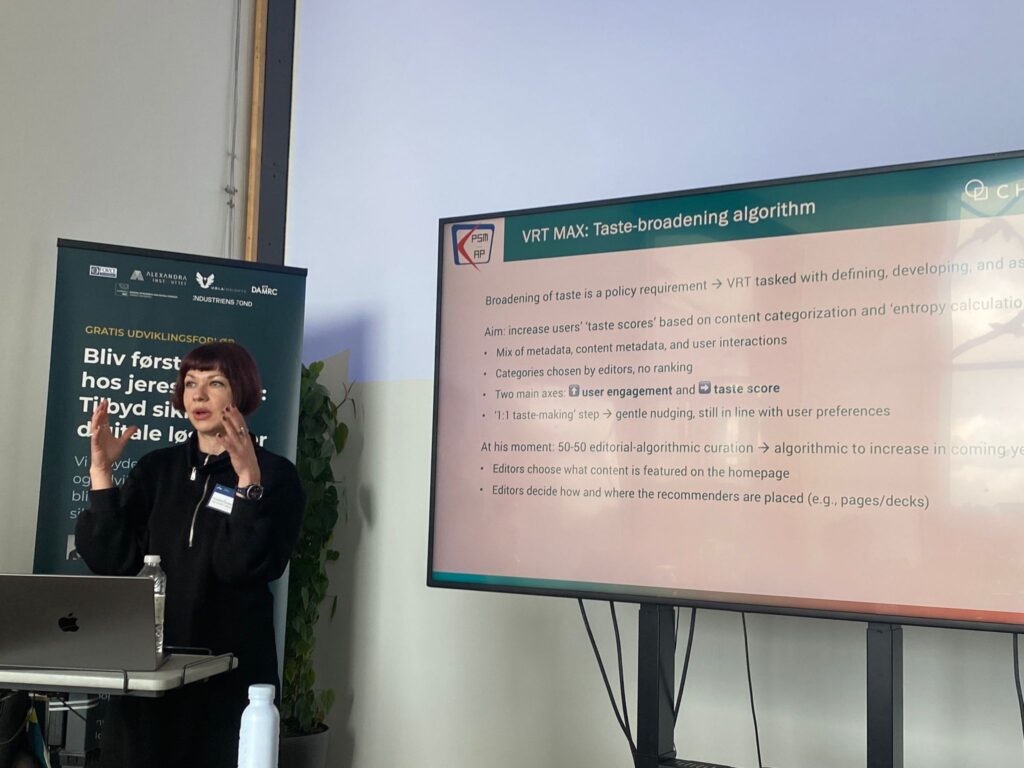
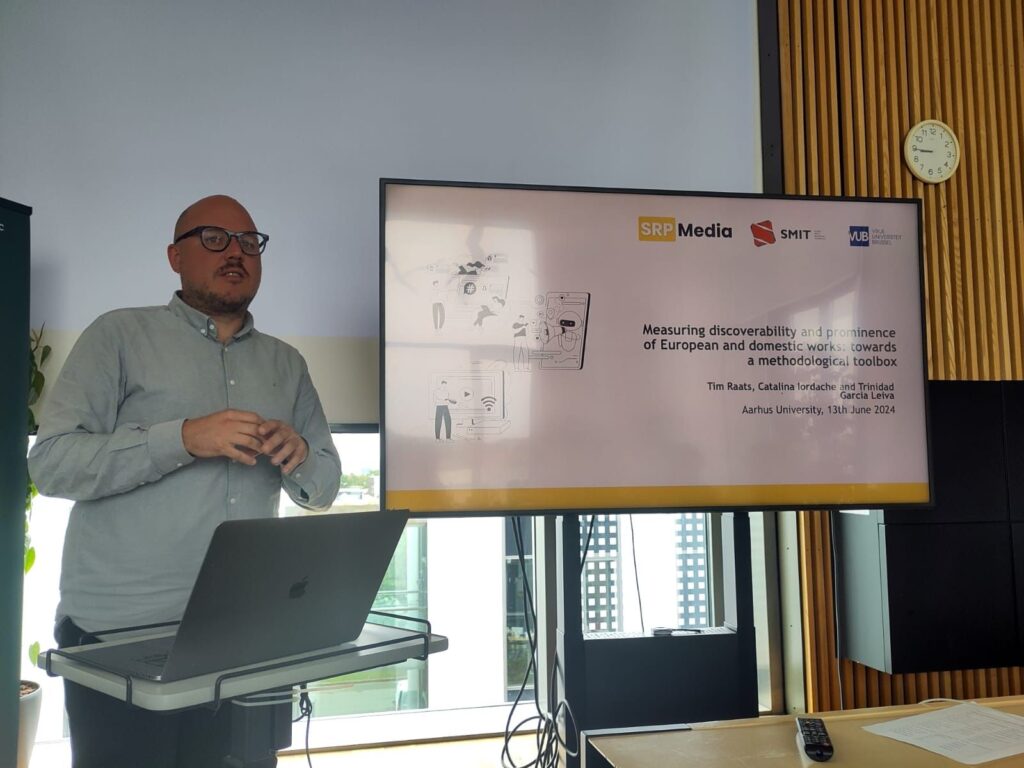
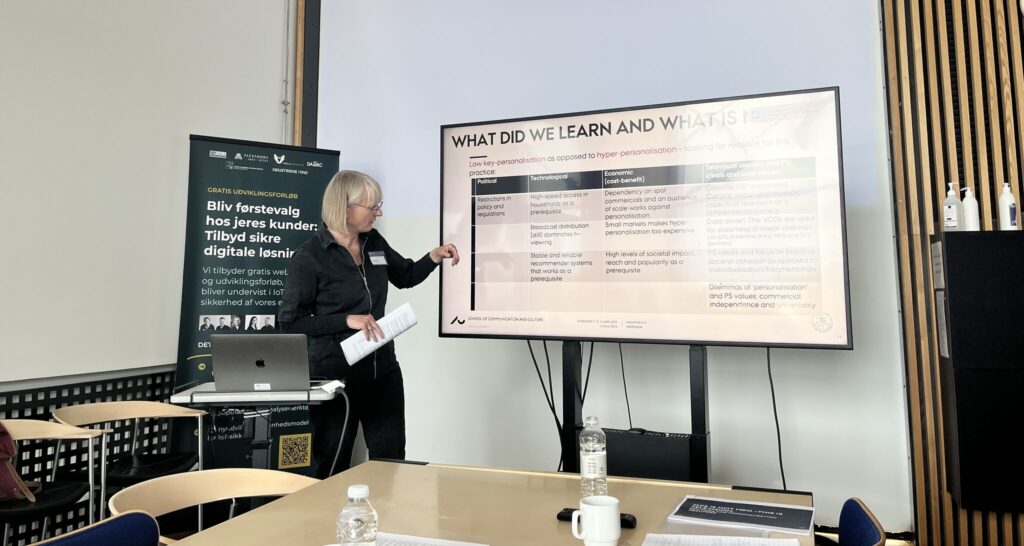
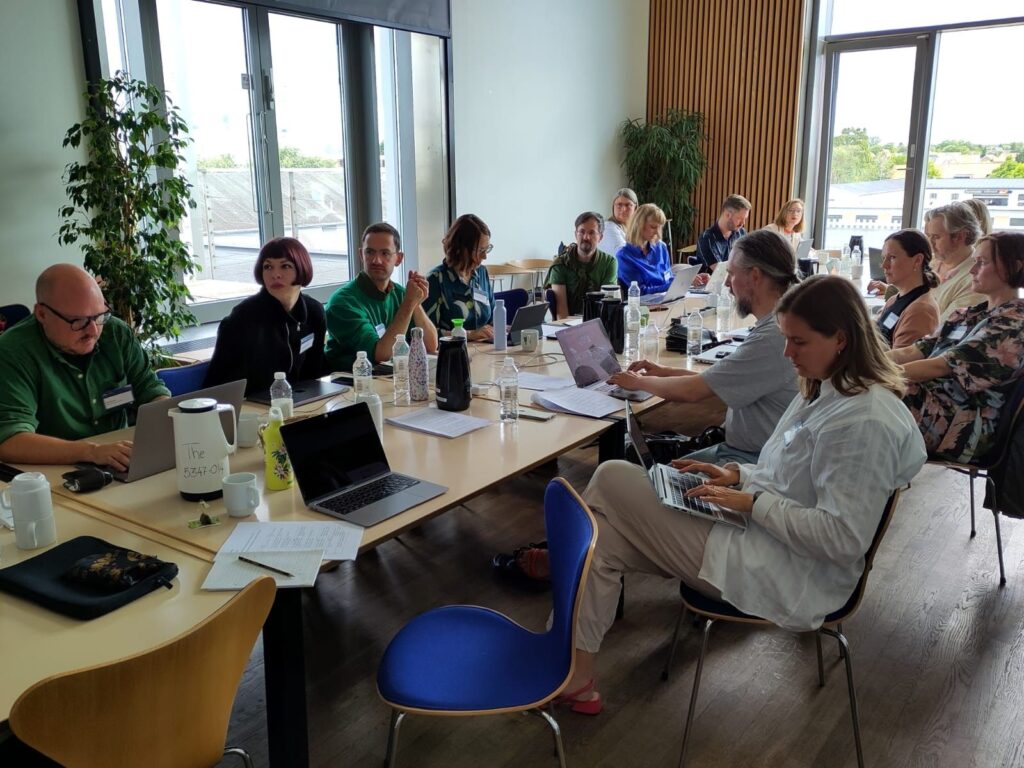
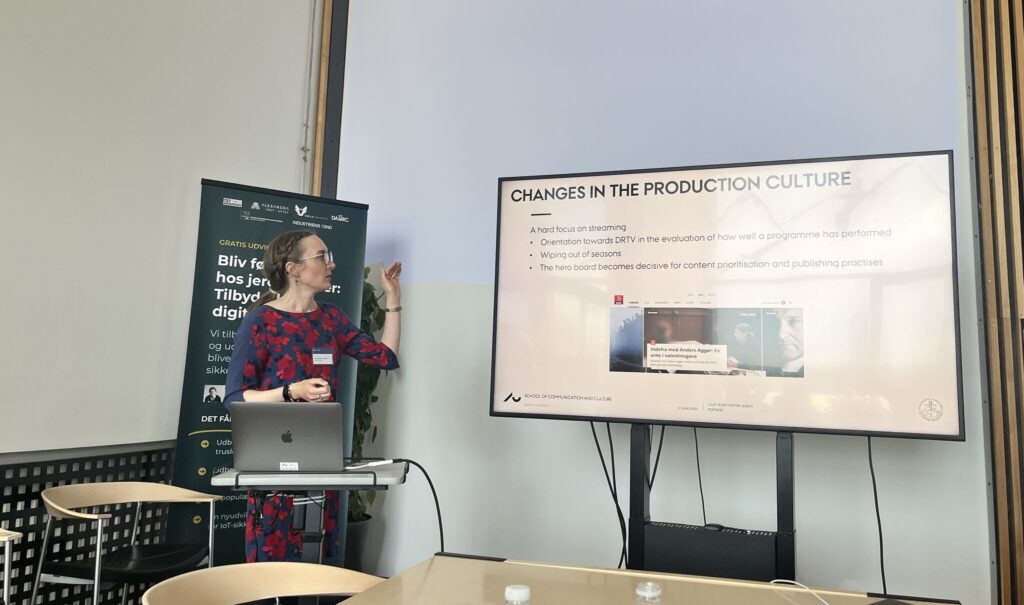
- Knowledge Exchange Workshop 2024 in Brussels
Last week, on January 26th, 2024, we successfully organised our first Knowledge Exchange Workshop, kindly hosted by the VRT in Brussels. We would like to thank all of our speakers and participants for their valuable contributions and their openness to discussing VoD strategies, research, personalisation practices, and the development of public service algorithms. We’ve learned a lot and hope to have opened new opportunities for dialogue and future collaboration between researchers, policymakers, and the industry.
The full-day programme included:
🔎 A series of presentations on the PSM-AP project and the work done in WP1 on Policy and Regulation and WP3 on Personalisation. This included an overview of the PSM-AP project by project leader Catherine Johnson, a talk by postdoctoral researcher Catalina Iordache titled ‘Towards future-proof Public Service Media?’, and a presentation on due prominence and public service media by principal investigator Tim Raats.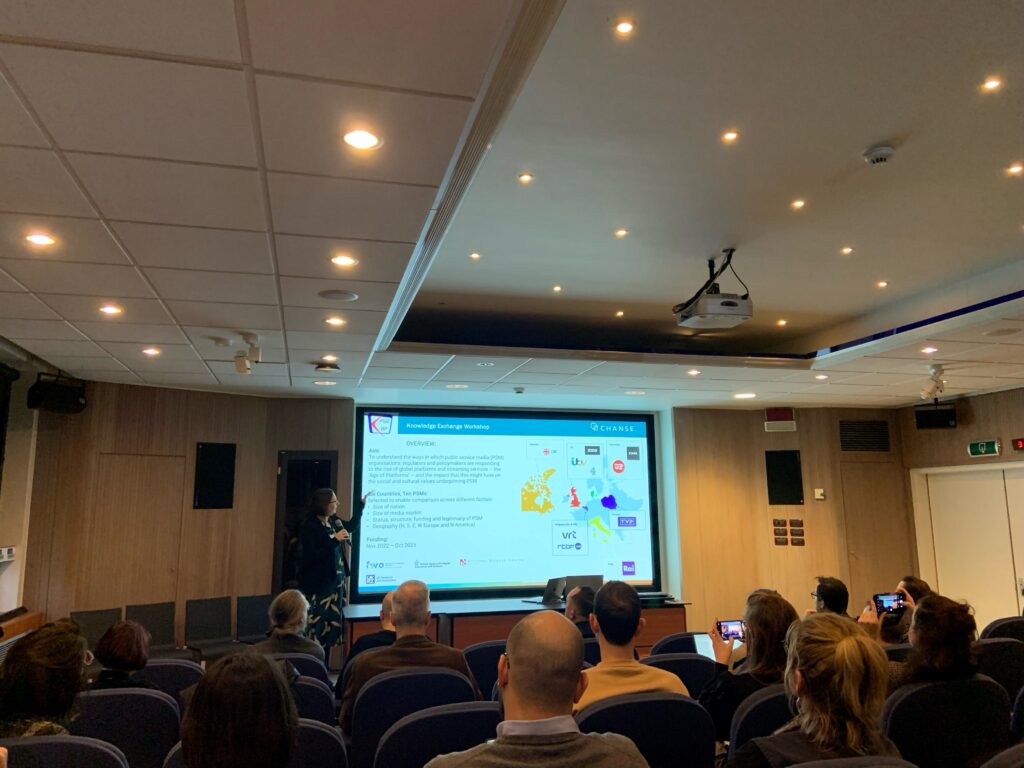
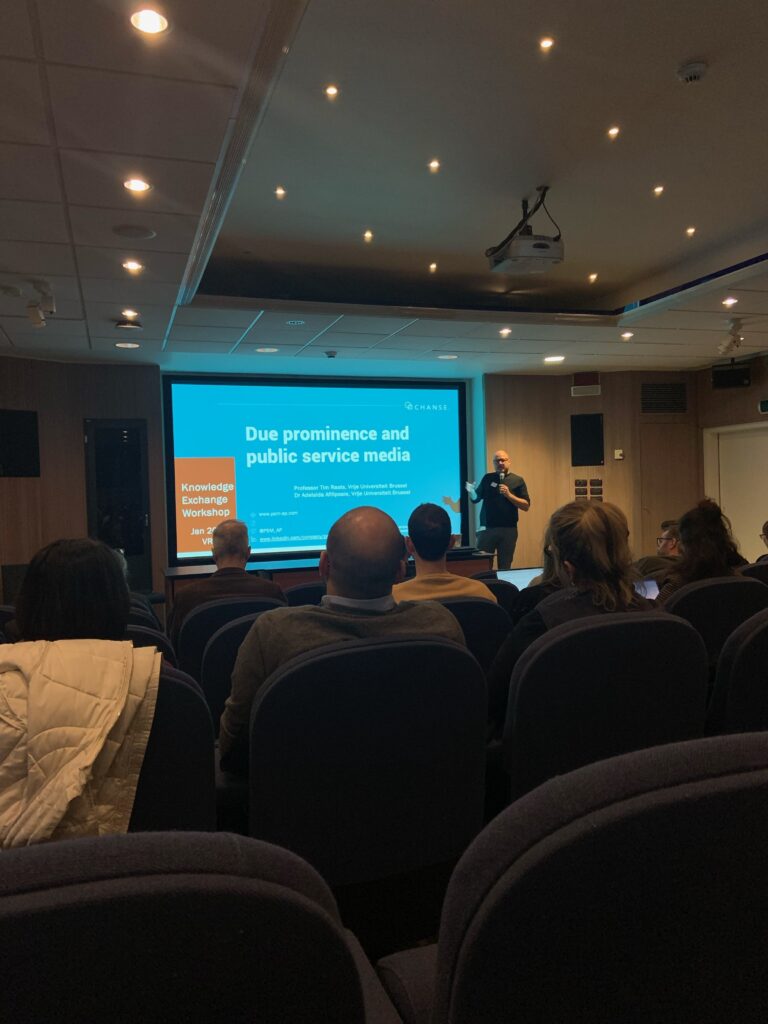
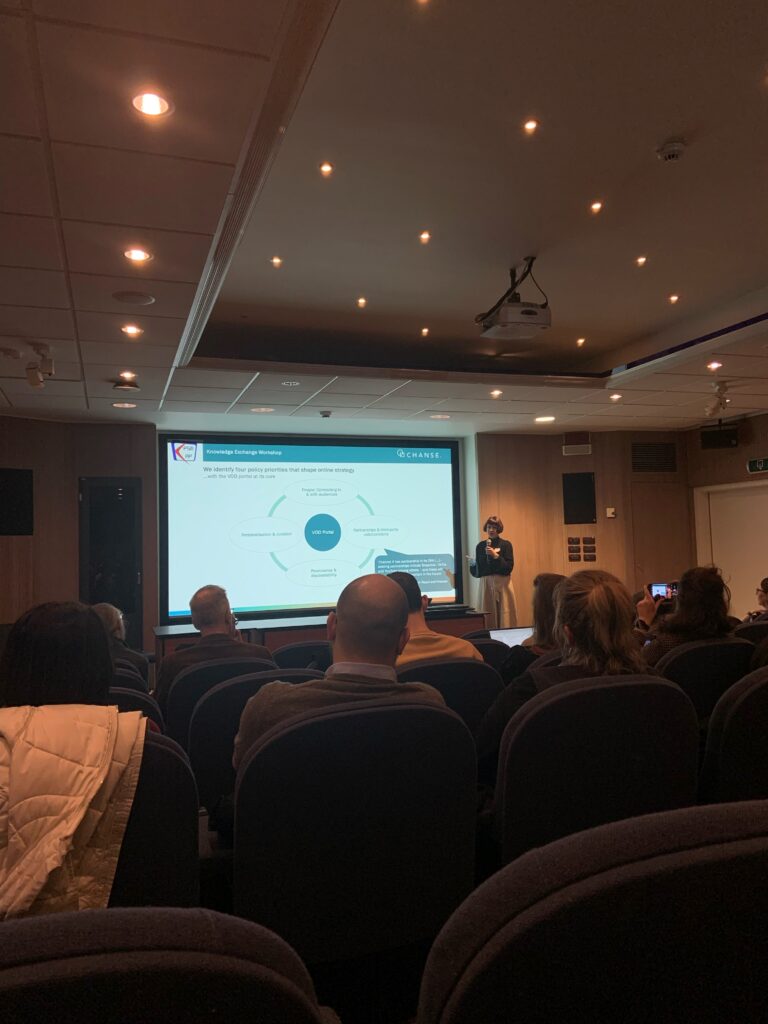
🎤 A very interesting discussion panel on the topical issue of Due Prominence of PSM and Public Interest Content. The four panelists included PSM representatives Karen Donders (VRT) and Thomas Granryd (SR), as well as researchers María Trinidad García Leiva (University Carlos III of Madrid) and Michèle Ledger (University of Namur). The panel was moderated by our project leader Catherine Johnson.

The panel discussion on Due Prominence of PSM and Public Interest Content. From left to right: María Trinidad García Leiva, Michèle Ledger, Thomas Granryd, Karen Donders, and Catherine Johnson. 📊 A highly engaging afternoon session discussing personalisation and public service algorithms with PSM representatives from multiple European countries. Public broadcasters in attendance included VRT (Belgium), RTBF (Belgium), BBC (UK), Channel 4 (UK), NPO (Netherlands), YLE (Finland), SR (Sweden), ZDF (Germany), and RAI (Italy).

Andreas Grün presenting about public service algorithms at ZDF during the afternoon session. 📖 The launch of our first Policy Brief entitled: ‘Towards Future-Proof Public Service Media? Lessons from a comparative analysis in seven media markets’, which is co-authored by Tim Raats, Catalina Iordache and Catherine Johnson. The brief is available for download here: https://smit.vub.ac.be/policy-brief-72-towards-a-future-proof-public-service-media-lessons-from-a-comparative-analysis-in-seven-media-markets


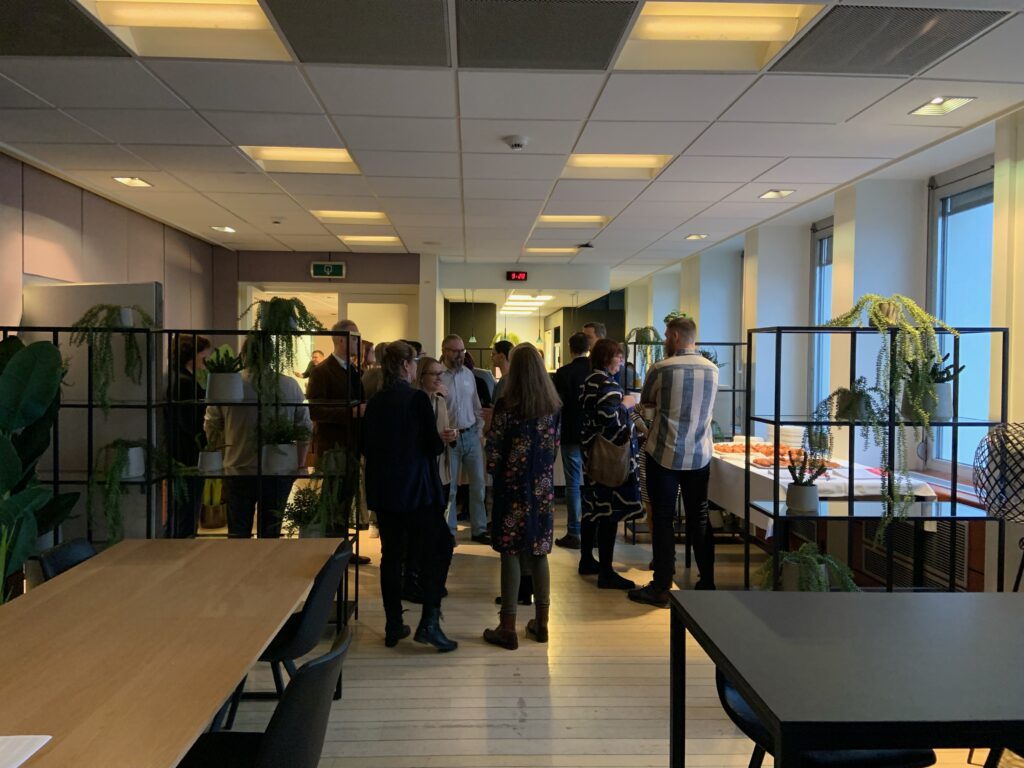

The PSM-AP team nearly in full. From left to right: Michał Głowacki, Colin Frank, Catalina Iordache, Antonio Nucci, Tim Raats, Katarzyna Gajlewicz-Korab, Julie Mejse Münter Lassen, Catherine Johnson, Serra Tinic, Jacek Mikucki, Massimo Scaglioni, and Filip Świtkowski. - Aarhus workshop
This June, half of the PSM-AP team enjoyed the Danish sun in Aarhus ☀️🇩🇰
At the invitation of Hanne Bruun and Julie Mejse Münter Lassen, we took part in a workshop entitled Television Publishing Strategies in an On-Demand Driven Media Culture: Content production, audience considerations and scheduling practices. We presented some of our work, including preliminary results from WP1 on Policy & Regulation, the project’s conceptual and methodological considerations, and the challenges we are facing in conducting online comparative research.
We’re excited to share more of our work soon, but also to spend more time together at future events. If you want to see what we have coming up, watch our future events space.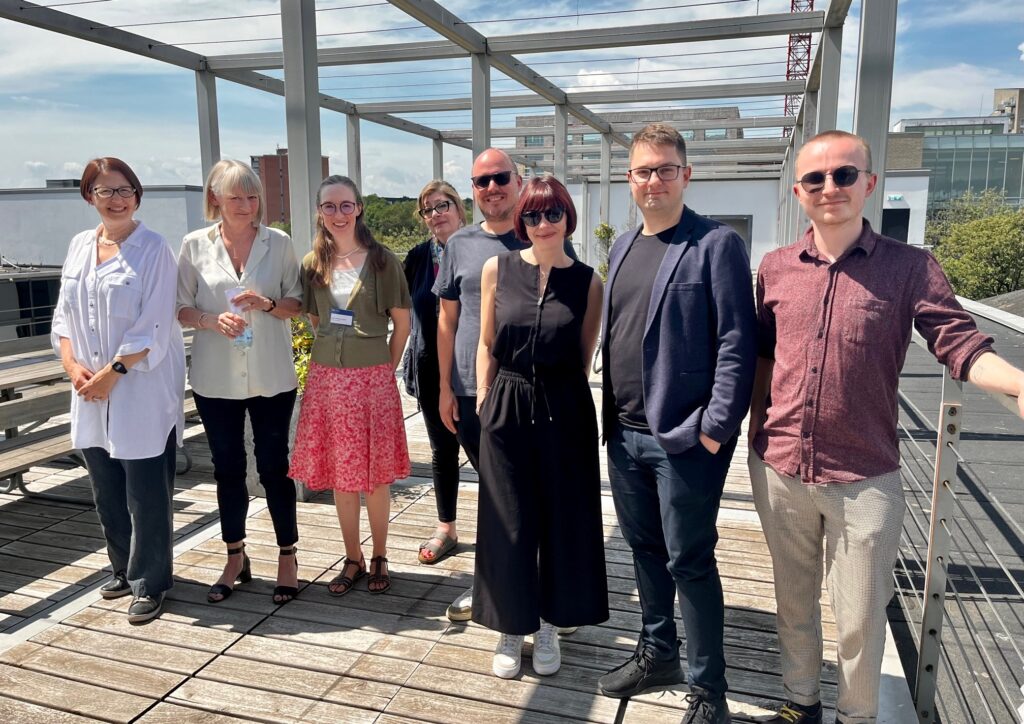
Half of the PSM-AP team at Aarhus University. From left: Catherine Johnson, Hanne Bruun, Julie Mejse Münter Lassen, Serra Tinic, Tim Raats, Catalina-Mihaela Iodarche, Filip Świtkowski, and Daniel Martin. - CHANSE Kick-off Conference
The CHANSE Kick-off Conference in Tallinn was a success, with our team members Catherine Johnson, Michał Głowacki, Massimo Scaglioni and Julie Mejse Münter Lassen in attendance. The conference, titled ‘Transformations – Social and Cultural Dynamics in the Digital Age’, brought together CHANSE funded project teams from across Europe for a two-day conference, with keynotes, workshops, and panel sessions. On the second day our project leader, Catherine Johnson, presented the PSM-AP project, providing an overview of the project and what’s to come.

Project leader Catherine Johnson presents the PSM-AP project at the CHANSE kick-off conference. In addition, the team was able to meet with project partner Sasha Scott from the European Broadcast Union.
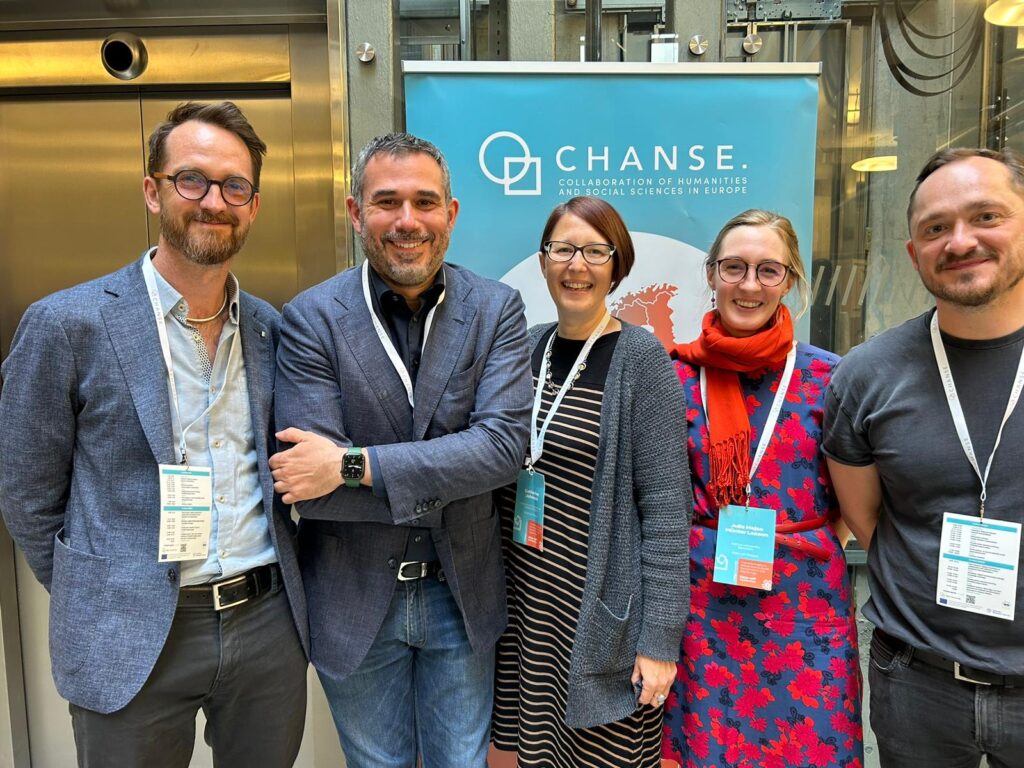
Some of the PSM-AP team members with EBU representative Sasha Scott. From left to right: Sasha Scott, Massimo Scaglioni, Catherine Johnson, Julie Mejse Münter Lassen, Michał Głowacki.